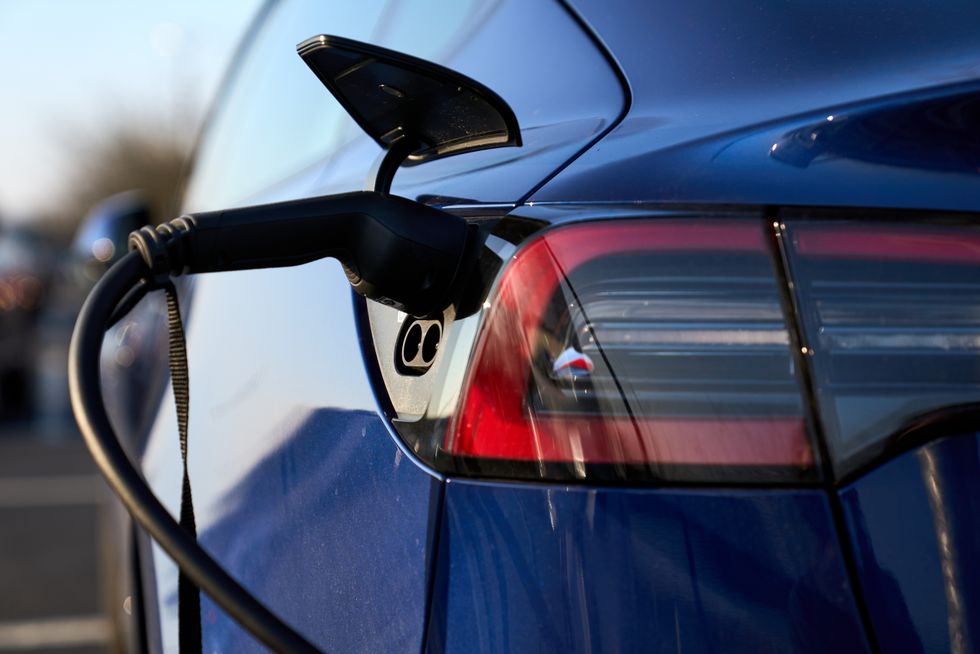Experts have called for the return of the 2030 ban on petrol and diesel cars to help force drivers to switch to electric cars.
The original mandate for the ban of new petrol and diesel cars was supposed to come into effect in 2030, but the Government delayed in until 2035.
The delay was to give the car industry enough time to get production in order or it could see them heavily fined under new regulations.
The ban on petrol and diesel cars comes as the Government aims to hit its ambitious net zero goals.
Do you have a story you’d like to share? Get in touch by emailingmotoring@gbnews.uk
Aat least 22 per cent of all new car sales will need to be electric by this year
GETTY
The goal would require at least 22 per cent of all new car sales to be electric by this year, but many car makers have warned that this might not be realistic as demand slows.
The heavy price point for EVs and the uncertainty of switching from a reliable fuel source have put more uncertainty and strain on car makers who are increasing production without seeing a bite in the market.
Asif Ghafoor, CEO of Be.EV, explained that bringing back the 2030 ban is an “achievable” goal that “won’t cost the Government a lot”.
But it will have a “huge psychological boost that will get people feeling good about EVs again”.
Offering a few suggestions to increase driver appetite for purchasing an electric car Ghafoor said the Government could reduce the power cost for those who switch and get rid of the VAT on public EV charging costs.
Flagging price as a key issue he warned that the obsession with increasing the number of chargers being installed is “unhelpful”.
It leads to far “too many cheap lamppost chargers being installed, which are not only slow but will become nothing more than street clutter in the next three years”, he stated.
In his opinion, there should be a simple mandate that compels every local authority to open up 50 per cent of their land for private companies to install EV chargers.
Ghafoor added: “They don’t have the capital or expertise to do it themselves. We don’t want any more rules or changes – that’s a headache for everyone.
“What we really need is continuity and certainty. This will really help charging networks to expand.
“We have an opportunity to be world leaders in EV chargers. We have the expertise and capital to do it, and if we do it successfully, we can export this to other countries, creating jobs and investment along the way.”
He remarked how there is reportedly enough capital and expertise in the UK that “all the Government needs to do is simplify things” and let the private sector get on with it.
LATEST DEVELOPMENTS:

Petrol and diesel cars will be banned from 2035
PA
The Government should set clear targets that each Distribution Network Operator needs to deliver a certain amount of power to chargers annually or they get fined, Ghafoor suggested.
He detailed: “It’s simple – we need more of a focus on installing faster chargers and put the pressure on DNOs to get them to speed up the transition.
“If they don’t meet these targets they should be fined.”

